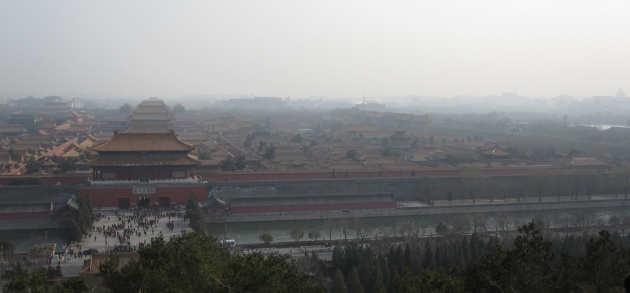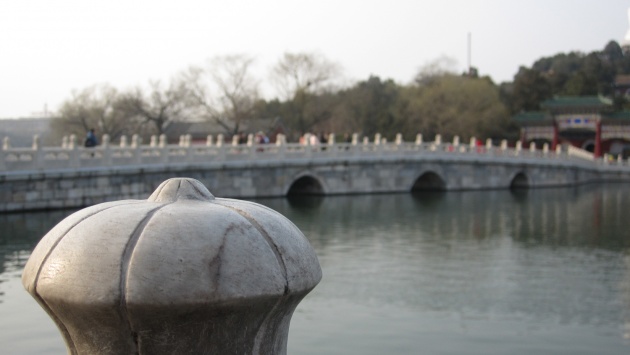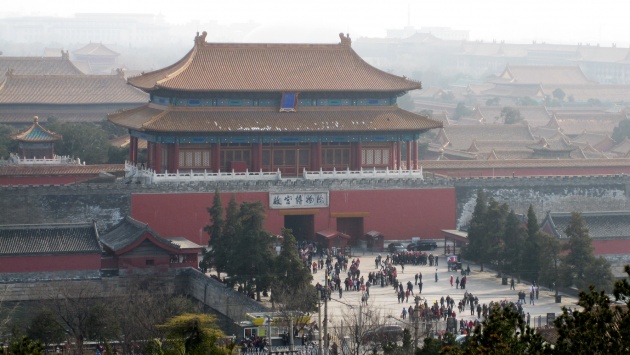As I prepare to leave Berlin to go to Stuttgart by train, here is an update on two important meetings we had with potential co-production partners in Beijing.

Galloping Horse
Galloping Horse is a company that I've had my eye on since my short film was selected in the Whistler Film Festival late last year. During the Whistler Film Festival, Galloping Horse was one of two companies that was holding a screenwriting contest called the China-Canada Gateway for Film Screenwriting competition. It was a competition that was selecting 12 Canadian scripts as finalists to pitch in front of live-audiences for the chance to gain access to a $5 M budget and co-production opportunity between Canada and China. Unfortunately, my script was not selected as one of the 12 finalists (not surprising since it was too early in development and I had not yet secured Roger Frappier's participation).

Nevertheless, when we met with Galloping Horse's project manager Yi-Tong, he had heard of my short film, because it won best short film in Whistler. And he also commented that he had wished he had seen my film in the 12 finalists, because the project really stood out to him. They said that the trailer for my short film was beautiful, and seemed quite intrigued with the artistic nature of the project. The meeting was arranged by my co-writer Kai Yin, and as a result, we managed to get an hour and a half of Galloping Horse's time. Quite a step up from a five minute pitch in Whistler.
Their office is located in an immense, metroplex-style building in Beijing. We met in their board room office where they served us hot water. Yi Tong spoke very good English after having lived in the New York for many years. He spoke a little bit about the history of Galloping Horse. They started in ads, moved to TV, moved into film and made a huge move in their take-over/merger with Digital Domain.
Our discussion of animated films involved breaking down narrative structure and techniques of such films as the Illusionist. Triplets de Belleville, Princess Monoke, big Hollywood brand-name studios like Pixar and Dreamworks as well as internally produced Chinese features like Xi Yang Yang. He mentioned that having a Chinese co-writer from Beijing was definitely a positive for our project, and also mentioned the potential importance of referencing Jin Yong, the famed martial arts novelist, which is something we have been striving for.
We ended the meeting by taking a tour of their relatively small but talented 3D animation studio.

Cashflower
Cashflower is a much smaller company than Galloping Horse, but they have a great reputation for taking smaller, independent films and due to their extremely smart marketing strategies, making a lot of money for the films. This meeting was also arranged by my co-writer Kai Yin as he is very close to the girl who does the script evaluating for the company. The meeting with Cashflower was quite special, because instead of a formal business setting, the meeting to place in a homely apartment setting, and they served us tea, constantly. My tea cup was never empty. And the table was a special tea table that they could pour liquid into without it spilling. They didn't speak much English, so Yin had to translate, but said that the tea house theme was there to promote a friendly atmosphere.
It turns out that Cashflower also has close connections with investors and important players in private equity film financing. The boss of Cashflower expressed his deep personal admiration for my project, and yet expressed some concern over the marketability of such an artistically driven project in the Chinese market. However, he lived up to his company's reputation for being brilliant marketers, because he quickly came up with some great suggestions as to how to market such a film. He proposed incorporating a stronger link to the Chinese water ink animations of the 50's & 60's, establishing a sort of nostalgia, reminding older generations of those films, and to allow them to reminisce and bring their children to see the film as a way of educating them about that time period.
I also proposed an idea of trying to work very closely with an already established martial arts choreographer who would be more used to working in live-action. In this way, our project could market the film as the choreographer's first piece in animation. Everyone from Cashflower sort of sat back and imagined for a moment and thought that this was a very good idea. As it turns out, they are also quite close to Yuen Woo-Ping the famous Hong Kong martial arts choreographer who gained fame in North American when he choreographed for American blockbusters such as the Matrix and Kill Bill.

I finished off my trip in Beijing by exploring the Forbidden City and taking location pictures.



